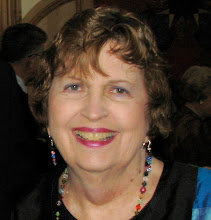Cinquain was a new word to me, so I did some research. Shawn M. Tomlinson, on ehow.com, defined it nicely:
"Cinquains are five-line poems in three basic patterns created originally by Adelaide Crapsey (1878-1914) based on the Japanese 17-syllable Haiku. She did not originate the five-line poem, but instead altered it for starkness associated with the Haiku. Crapsey wrote 28 of them. While the form never has become the mainstream of American verse, it is an unusual poetic type that restricts the poet to very few words, thus making it a hard form to master, but beautiful to read.
The cinquains follow one of the following formats. The first is that each line has successively more words,
except the fifth. The first line has one word, the second two, the third three, the fourth four, and the fifth
back to one.
In the second type, each line has a type of word. The first has a noun, the second two adjectives, the third three words ending in "ing," the fourth a phrase, and the fifth a noun.
In the third type, each line has successive syllables. The first has two syllables, the second four, the third six, the fourth eight, and the last two."
Evelyn was assigned to write Cinquains in Dr. Adler’s Prosody class which she took in 1933. Today we’ll look at four of hers that follow the third pattern.
Wonder
Where God bought the
Silver He wove into
My Mom's hair. It gleams so whitely,
Brightly!
* * * * *
Firelight
Plays a magic
Melody in my mind.
Colors tinkle dancingly, like
Dream bells.
* * * * *
I see
Tears shining in
My baby's eyes, like drops
Of morning dew in the heart of
A flower.
* * * * *
Quiet
Red sands tremble
To a wave's caress as
The sea's dark waters roll. Night plays
Its harp.
Evelyn Coffey
